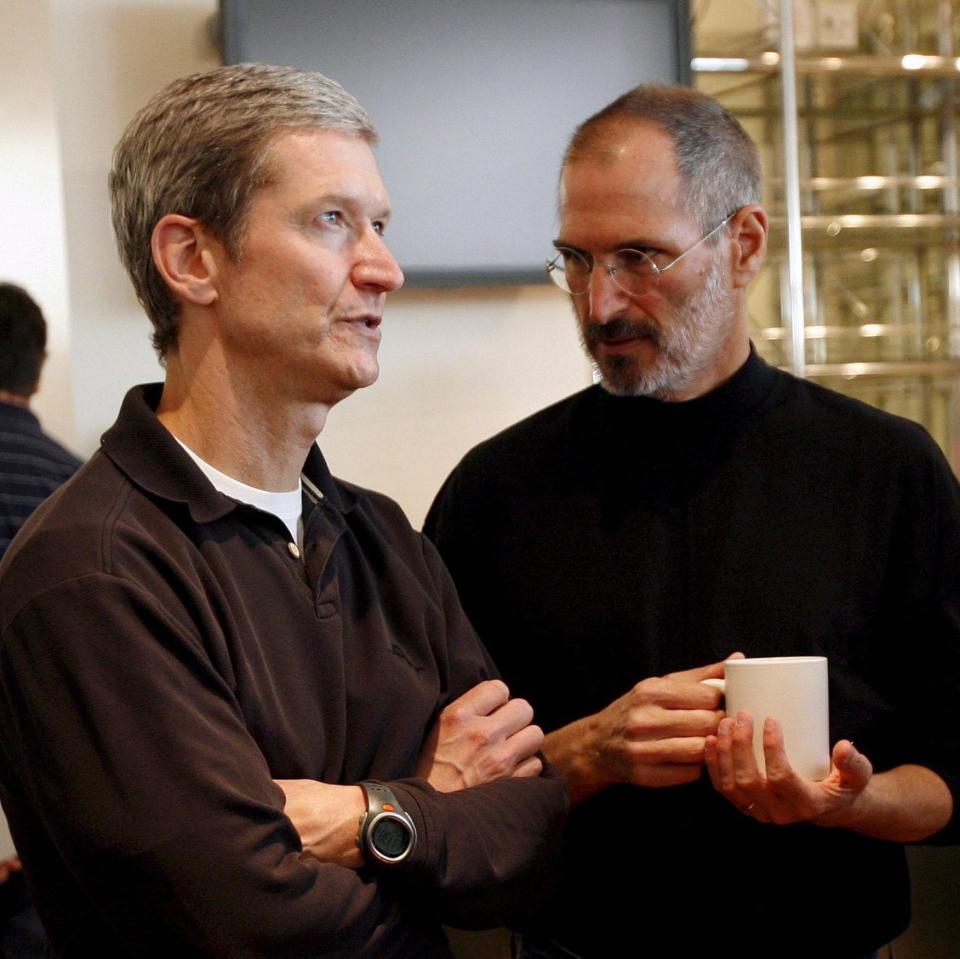With just two bad jokes at the Royal Albert Hall in 1991, Gerald Ratner brought his company into disrepute. Last week Apple gave it a try, but with a much bigger budget.
In a TV commercial for the company, a wide variety of musical instruments, creative tools and materials, and games are all destroyed by a giant black slab. Even an old Space Invaders-style arcade console has been flattened.
The ad revels in their destruction, and in the end there’s nothing left except that the new iPad, we’re told, is now a little thinner: 0.6mm thinner, in fact.
Rarely has there been such a unanimous response to an ad. For art critic JJ Charlesworth wrote that the video was “in the most derogatory form an expression of hatred of material culture, creativity and tactile sensuality”. “Imagine a hell where the only culture that exists is trapped on a screen.”
Many people also objected to the image of quasi-fascist power imposed from above, in which individuality was crushed and resistance was futile. If we want to see an example of the arrogance of modern tech giants, the Robber Barons of the 21st century, Apple has done it for us.
The company pulled the ad from circulation and said, “We missed the mark with this video and we apologize.” “Crush” will not appear on pre-booked TV slots, but the damage is done.
In the past, Apple has shamelessly chosen artistic genius to build its luxury brand. He’s trying to convince us that all the cool, creative people use Apple products, only the boring normies use their competitors’ products. In other words, poor people and tasteless people. Don’t be like them!
Today, the “Ratner Moment” is taught in business classes as an executive disaster lesson in what not to say.
The chief executive joked that the jewelery he sold was so cheap it would last longer than a Marks & Spencer prawn sandwich.
Considering that today every customer invests thousands of dollars in the Apple product ecosystem, we will not abandon the company overnight. But this is worse than “making a Ratner” because it dramatizes how Big Tech sees us and what we value.
We avoid such images because we know that we don’t need to destroy something truly beautiful to create something interesting and new.
This is the suggestion that city planners insisted we should accept when they were tearing up our beautiful Victorian heritage in the 1960s, and it is what Russell T Davies and Disney continue to do today as they undermine Doctor Who.
However, this is wrong. Old things can take on new forms and find new uses. As a builder you can add, not subtract. Our uneasiness is further compounded by the imminent emergence of what is branded as artificial intelligence and the massive flood of derivative, low-quality “content paste.”
It makes the world more boring because everything feels derivative and much less human. This comes at a huge cost to human creators.
How could Apple misjudge the audience so much? Steve Jobs would surely have been horrified and fired everyone involved: including paperback Tim Cook, who sat in Jobs’ chair. Maybe Apple was lost without its late co-founder, and it’s only now that we’re seeing how badly it was lost.

The Crush TV ad is truly chilling because it reveals a psychopathy that can be found in the giants of Silicon Valley: a generation of immature human-children who believe they are worthy Masters of the Universe and can alter reality to their will.
One notorious example is venture capitalist Marc Andreessen’s recent “Techno-Optimist” manifesto.
Anyone who questions Andreessen’s version of the future, in which restrictions on his behavior are removed, must be motivated by “fear, guilt, and anger.”
But Neil Turkewitz, a former music industry executive and creators’ rights advocate, counters that “technology has no clear destiny.” “It’s up to us to determine the arc.”
The brilliant popular historian Rick Perlstein recalls attending a book club held at Andreessen’s stately home, where the former small-town kid excelled: “It made clear that people who chose not to leave such places deserved all kinds of impoverishment, cultural and political neglect, and alienation.” They suffered.” This contempt is also clearly seen in the Crush commercial.
Art critic Charlesworth also wondered if “Apple has realized they have no new ideas for products and now wants to ruin everything.”
We don’t actually know, because Apple, like other Big Tech giants, doesn’t need to put as much effort into creating new things; The new iPad introduced by “Crush” is almost identical to the iPad it replaced.
Because Apple knows it can extract rent from us and business sectors like finance and third-party developers through subscription and service fees that we’ll pay forever once we’re locked in. Technology has become a comfortable oligopoly.
Perhaps we can use the PR disaster as a reminder of the ingenuity of anonymous scientists whose work has allowed the iPad to become 0.6mm thinner every two years. Much of technology is built on stolen courage.
To all the creators Apple disparaged last week: new inventions and creativity make the world feel fresh and alive; That’s more than the complacent tech giants are doing today, counting their profits and wondering what to do next.